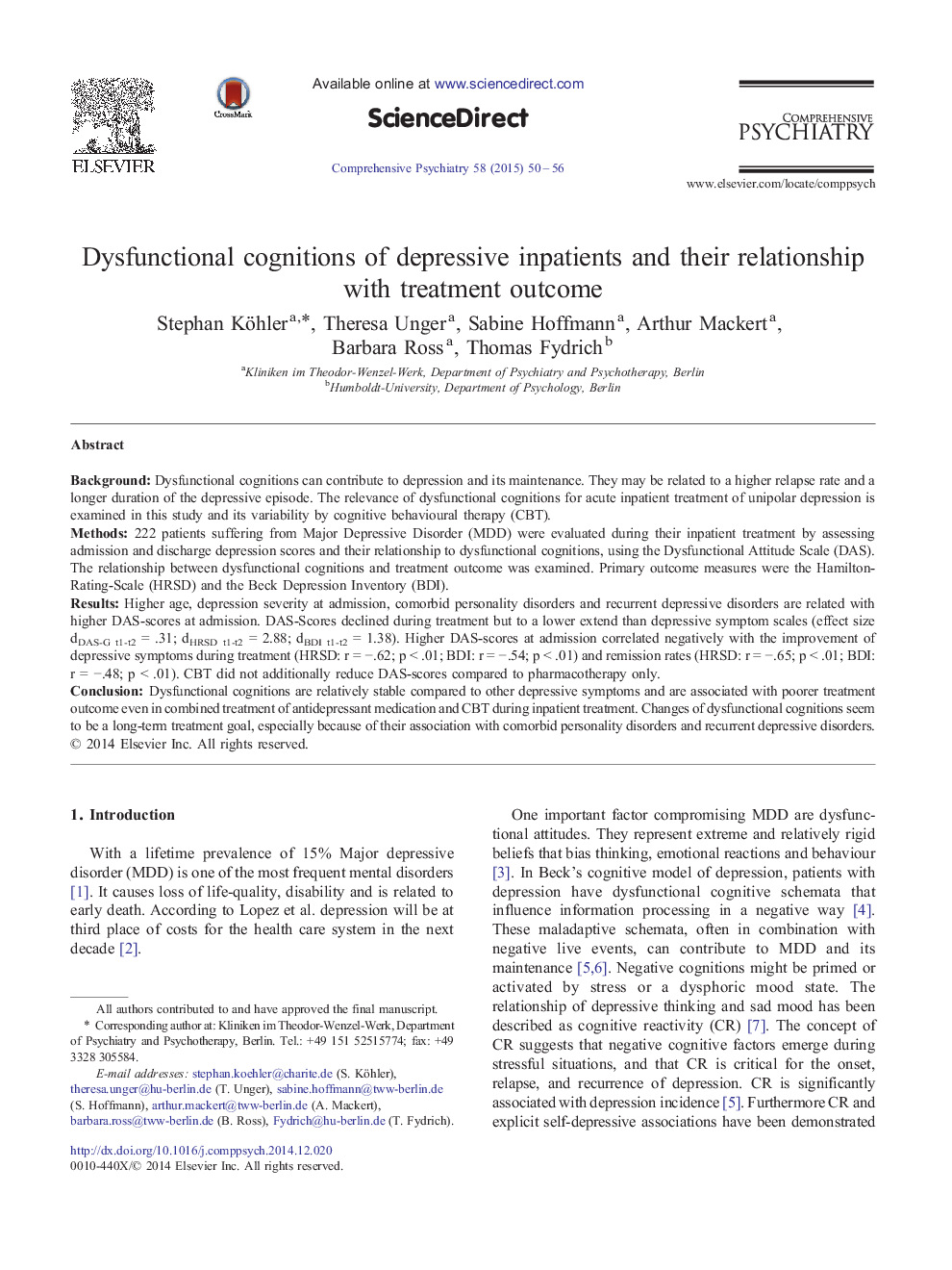| کد مقاله | کد نشریه | سال انتشار | مقاله انگلیسی | نسخه تمام متن |
|---|---|---|---|---|
| 317382 | 538163 | 2015 | 7 صفحه PDF | دانلود رایگان |
BackgroundDysfunctional cognitions can contribute to depression and its maintenance. They may be related to a higher relapse rate and a longer duration of the depressive episode. The relevance of dysfunctional cognitions for acute inpatient treatment of unipolar depression is examined in this study and its variability by cognitive behavioural therapy (CBT).Methods222 patients suffering from Major Depressive Disorder (MDD) were evaluated during their inpatient treatment by assessing admission and discharge depression scores and their relationship to dysfunctional cognitions, using the Dysfunctional Attitude Scale (DAS). The relationship between dysfunctional cognitions and treatment outcome was examined. Primary outcome measures were the Hamilton-Rating-Scale (HRSD) and the Beck Depression Inventory (BDI).ResultsHigher age, depression severity at admission, comorbid personality disorders and recurrent depressive disorders are related with higher DAS-scores at admission. DAS-Scores declined during treatment but to a lower extend than depressive symptom scales (effect size dDAS-G t1-t2 = .31; dHRSD t1-t2 = 2.88; dBDI t1-t2 = 1.38). Higher DAS-scores at admission correlated negatively with the improvement of depressive symptoms during treatment (HRSD: r = −.62; p < .01; BDI: r = −.54; p < .01) and remission rates (HRSD: r = −.65; p < .01; BDI: r = −.48; p < .01). CBT did not additionally reduce DAS-scores compared to pharmacotherapy only.ConclusionDysfunctional cognitions are relatively stable compared to other depressive symptoms and are associated with poorer treatment outcome even in combined treatment of antidepressant medication and CBT during inpatient treatment. Changes of dysfunctional cognitions seem to be a long-term treatment goal, especially because of their association with comorbid personality disorders and recurrent depressive disorders.
Journal: Comprehensive Psychiatry - Volume 58, April 2015, Pages 50–56
